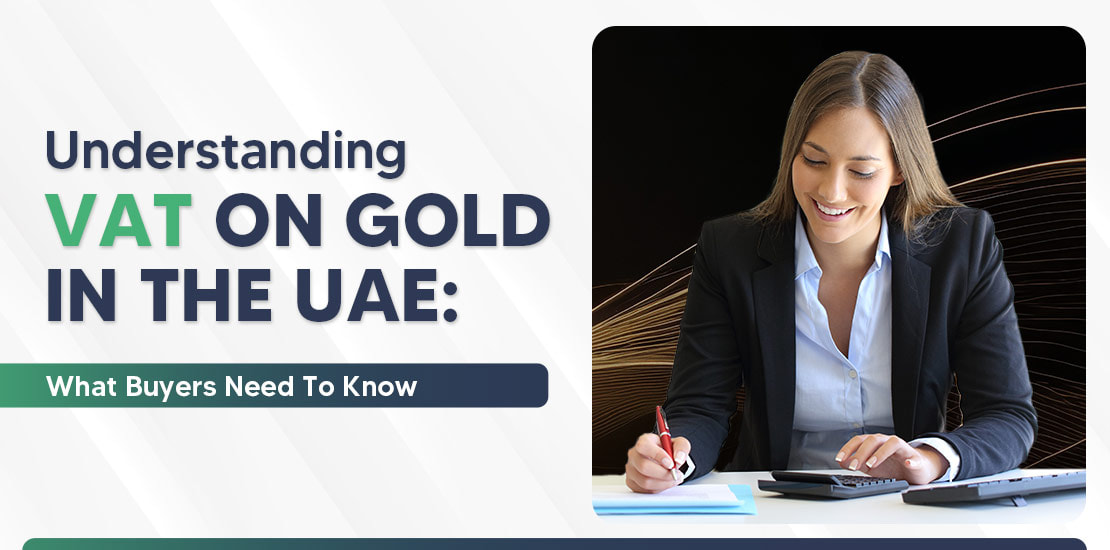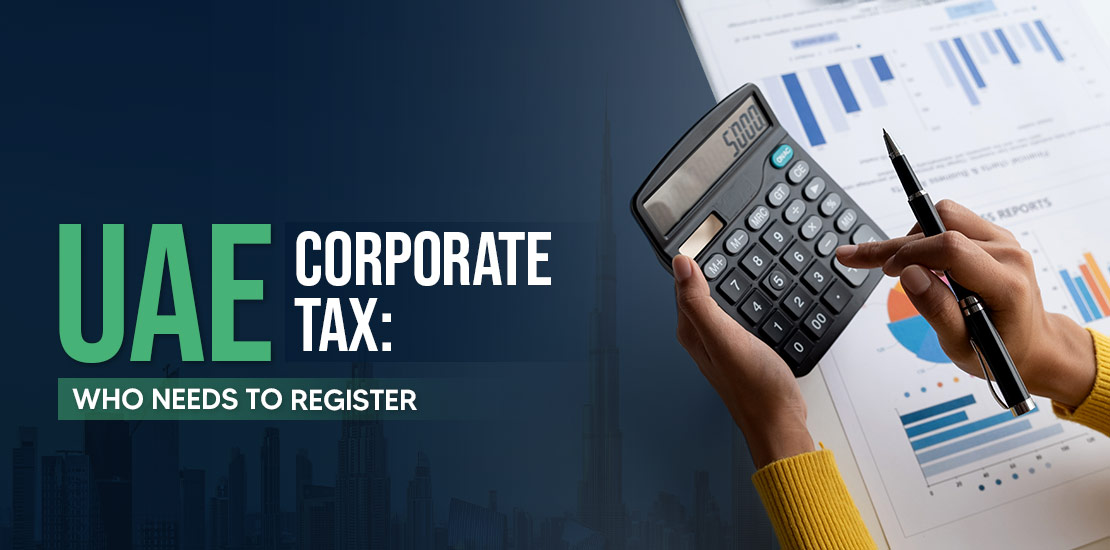Table of Contents
- Understanding Gold VAT in UAE: What Are the Recent Changes?
- Key Benefits of VAT Exemption on Gold VAT in UAE
- Eligibility Criteria for VAT Exemption on Gold Transactions
- Documentation and Compliance Requirements
- Impact on Gold VAT Rate in Dubai and Across the UAE
- Exploring the Gold Market in UAE: Essential Tips
- VAT Public Clarification: Gold Jewellery Making Charges
- Key Points to Remember about Gold VAT UAE Exemptions
The recent changes in VAT on Gold in UAE have created a dynamic shift in the gold, diamond, and precious metals market. To make the UAE a global hub for gold trading, the government has introduced a VAT exemption specifically targeting registered businesses trading gold within the UAE. This VAT exemption enhances the financial appeal of trading in gold and aligns with the UAE’s long-term economic vision. With reduced costs, trading and investing in gold have become significantly more attractive, positioning the UAE as one of the top global destinations for gold trade.
This guide explores everything you need about VAT on gold in the UAE, including the recent updates, eligibility criteria, compliance requirements, and tips for navigating this new landscape.
Understanding Gold VAT in UAE: What Are the Recent Changes?
VAT, or Value Added Tax, is typically applied at a standard rate of 5% on goods and services in the UAE. However, the new VAT exemption for gold, platinum, and silver transactions between registered businesses aims to boost the volume of gold trades and establish the UAE as a premier location for precious metals trading. This exemption applies only to business-to-business transactions, not to end-consumer purchases.
For those involved in gold trading, eliminating gold VAT in UAE on gold purchases in business settings presents a unique opportunity to maximise profitability while reducing operational costs.
Key Benefits of VAT Exemption on Gold VAT in UAE
The VAT exemption on gold transactions within the UAE has broad advantages for businesses and the national economy:
- Enhancing Market Attractiveness: Removing VAT for registered businesses makes trading in gold and other high-purity precious metals more appealing.
- Encouraging High-Volume Trades: By reducing transaction costs, the UAE’s gold market could increase trading volume, attracting global businesses and investors.
- Supporting Economic Growth: The VAT exemption is part of the UAE’s plan to grow as a leader in the global gold market, directly contributing to the country’s economic progress.
Eligibility Criteria for VAT Exemption on Gold Transactions
Not all transactions involving gold are eligible for VAT exemption. Specific conditions must be met for the exemption to apply:
- High-Purity Metals Only: This exemption applies to gold, silver, and platinum that meet the minimum purity threshold of 99%.
- Investment-Grade Products: Investment-grade items such as gold bars, coins, or bullion that meet the purity requirement are eligible.
- Registered Businesses: The exemption applies to transactions between VAT-registered suppliers and recipients within the UAE, as the exemption is designed for business-to-business (B2B) transactions.
Documentation and Compliance Requirements
To benefit from the VAT exemption on gold purchases in the UAE, businesses must meet strict compliance standards and maintain detailed records:
- Comprehensive Transaction Records: Businesses must keep clear and accurate transaction records, including VAT invoices, supporting documents, and proof of eligibility for VAT exemption.
- Proof of VAT Registration: Both buyer and seller must be VAT-registered, with supporting documentation to confirm their eligibility.
- Adherence to UAE Tax Laws: Strict compliance with UAE’s tax laws and regulations is essential to avoid penalties and remain eligible for the exemption.
Read Also: VAT Registration Process in Saudi Arabia
Impact on Gold VAT Rate in Dubai and Across the UAE
The VAT exemption also extends to importing and exporting eligible high-purity gold, platinum, and silver products, facilitating international trade. Additionally, making Dubai an even more attractive hub for precious metal transactions.
This policy reduces transaction costs and improves the UAE’s competitive edge in the global market, further solidifying its status as a preferred location for precious metal trading.
Exploring the Gold Market in UAE: Essential Tips
Understanding and staying compliant with the VAT exemption policies is crucial for those dealing in gold or considering investments in the UAE’s gold market. Here are some best practices for handling the evolving gold VAT landscape:
- Stay Updated on Tax Regulations: Regulations around VAT on gold in UAE may change over time. Regularly consulting official sources, like the UAE Cabinet or tax advisors, helps ensure compliance.
- Document Compliance: Meeting eligibility criteria and keeping meticulous records are non-negotiable. This ensures that your business practices align with tax regulations, allowing you to maximise VAT exemption benefits.
- Monitor Market Trends: The VAT exemption could influence gold demand and pricing. Stay aware of these dynamics to make informed trading decisions.
VAT Public Clarification: Gold Jewellery Making Charges
In 2022, the Federal Tax Authority (FTA) issued a public clarification (VATP029) detailing VAT application on gold-making charges. This impacts how VAT is handled on services and products in gold jewellery. Businesses need to differentiate between types of supplies. Here’s an overview of the main points:
1. Single Composite Supply: If a gold item is sold with making charges included as one price, it’s considered a single composite supply. VAT is applied to the total supply under the Reverse Charge Mechanism (RCM). This applies if:
- Gold is the main component, with charges made as ancillary.
- The price of gold and making services are combined in one line item.
2. Multiple Supplies: If making charges are billed separately, the supplier must apply VAT at the standard rate (5%) on making charges, with the gold component subject to the reverse charge mechanism.
3. Exemptions: Gold exports and investment-grade metals that meet specific criteria are not subject to VAT or the reverse charge mechanism, enhancing their appeal in international markets.
Understanding the Reverse Charge Mechanism for Gold Items
The UAE Cabinet Decision No. 25 of 2018 introduced a reverse charge mechanism for certain gold transactions, provided specific conditions are met:
- Recipient Registration: The recipient of the gold supply must be VAT-registered on the transaction date.
- Use of Gold Items: The recipient must use the gold items for production, manufacturing, or resale.
- Supplier Declaration: The supplier must obtain a declaration from the recipient confirming the intended use of the gold items and the recipient’s VAT registration status.
If these criteria are met, the recipient is responsible for accounting for VAT on the supply, and the supplier is exempt from charging VAT on the transaction.
Single Composite Supply vs. Multiple Supplies
When supplying gold along with making services, suppliers must classify transactions as either single composite supplies or multiple supplies:
- Single Composite Supply: If a single price includes gold and making services, the transaction is treated as a single composite supply under the reverse charge mechanism, provided the gold is the main component.
- Multiple Supplies: If making charges are billed separately, they should be taxed at the standard rate, while only the VAT related to the gold may fall under the reverse charge mechanism.
Key Points to Remember about Gold VAT UAE Exemptions
The key points to remember about Gold VAT UAE Exemptions are as follows:
- The exemption applies to high-purity (99%+) gold items and only between VAT-registered entities in a B2B context.
- Compliance with documentation and eligibility criteria is essential to benefit from the VAT exemption.
- The reverse charge mechanism applies exclusively to gold items, not to related services like making charges, unless treated as a single composite supply.
Is there any VAT on gold in UAE?
Yes, the UAE applies a 5% Value Added Tax (VAT) on most gold products. However, the VAT treatment depends on the type and purity of the gold:
- Investment-Grade Gold (99% purity and above): VAT is zero-rated for gold bullion and other investment-grade gold products with a 99% or higher purity. This means that while VAT applies at a rate of 0%, suppliers can still recover any input VAT paid.
- Gold Jewelry and Lower-Purity Gold: Gold items not of investment grade, such as jewellery or lower-purity gold, are subject to the standard 5% VAT. This applies to gold items with a purity below 99%, including many decorative and personal-use gold items.
This VAT structure was implemented to support the investment market for gold while maintaining revenue on commercial gold products.
Conclusion
The VAT exemption on gold transactions within the UAE provides an economic boost for businesses and traders, positioning the country as a prime hub for the global gold market. By understanding the new policies, eligibility requirements, and compliance rules, traders and investors can manage this updated gold VAT rate in Dubai and across the UAE, making the most of the potential tax savings.
For more detailed information on VAT policies or to explore how your business can benefit, contact us at +971508912062 or info@shuraatax.com













